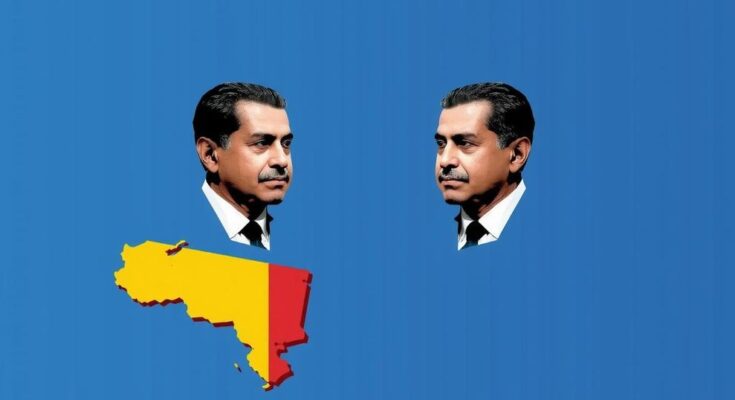The U.S. has sanctioned 21 additional associates of Nicolás Maduro, citing repression following the disputed July presidential election. The Biden administration recognized Edmundo González as the rightful president-elect. Despite these sanctions, Maduro’s allies remain in power, complicating the political landscape in Venezuela.
The United States has placed sanctions on 21 additional associates of Venezuelan President Nicolás Maduro, citing their involvement in repression following the disputed presidential election that took place in July. The sanctions, issued by the Department of the Treasury, include high-ranking officials such as the director of the national corrections agency and the head of an intelligence service. These new measures augment a long list of Venezuelans already sanctioned, including high court judges and cabinet ministers.
In a parallel move, the Biden administration declared Edmundo González, an opposition candidate, as the legitimate president-elect of Venezuela. Moreover, visa restrictions were imposed on more individuals implicated in acts of repression against Venezuelans post-election. Although Maduro declared victory in the election, allegations of vote tally tampering persist, as he has yet to release verifiable results supporting his claims.
The political climate has intensified further; González, who fled to Spain after facing legal action in Venezuela, asserted that he won the election by a significant majority, representing the main opposition parties against Maduro’s regime. Just weeks prior, the U.S. had sanctioned 16 of Maduro’s allies for engaging in human rights violations and obstructing the electoral process. However, the effectiveness of these sanctions remains unclear, as the loyalists to Maduro continue to wield substantial influence over the government.
The Venezuelan legislature has also been debating a controversial bill categorizing economic sanctions as crimes against humanity, signaling a potential shift in the political landscape as they seek to deliver repercussions against those supporting U.S. sanctions.
The context of the ongoing political turmoil in Venezuela is rooted in the disputed election results from July, which have led to escalated tensions between the Maduro government and opposition factions. The Biden administration’s recent actions to sanction Maduro’s allies highlight the United States’ commitment to addressing human rights abuses and electoral fraud within Venezuela. The political strife not only reflects internal divisions but also has substantial implications for international relations, particularly between the U.S. and Venezuela.
In conclusion, the United States’ recent sanctions against prominent officials tied to Nicolás Maduro underscore the ongoing conflict over the legitimacy of Venezuela’s presidential election. With Edmundo González recognized as the president-elect by the U.S. and continued allegations against Maduro’s administration, the situation remains fragile. The Venezuelan government’s legislative efforts to counter U.S. sanctions reveal a deepening rift, reinforcing the critical need for dialogue and resolution in pursuit of democratic governance in Venezuela.
Original Source: www.wlrn.org




